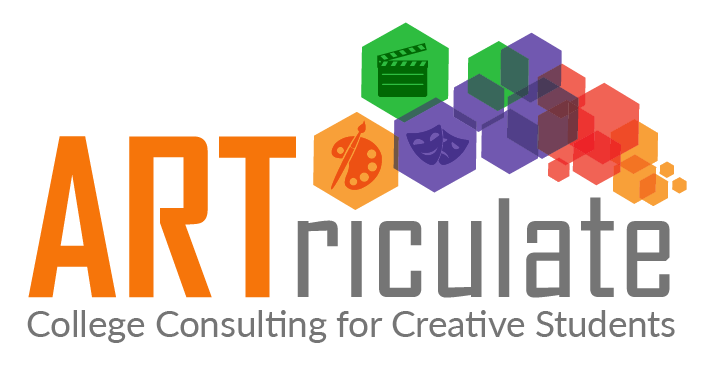7 Considerations when selecting a college
A previous blog discussed finding your "best fit" colleges. Here we dive a little deeper and talk about considerations for selecting a program. Here are seven areas to evaluate:
Convenience/Geography - Does the program allow you access to places that will lead to contacts and experiences that will help you secure a job. This doesn't necessarily mean that the program should be located in these cities, some programs have defined semesters in other locations which augment your experience. Emerson has a semester in Los Angeles for its film students, Parsons offers a four-year Fashion Design BFA in Paris, and RIT has semester abroad programs in Copenhagen, Paris and Milan specifically for Interior Design Students.
Focus - Will the program provide you with techniques, materials, and experiences to be well rounded in your field? If you're an actor, will the program expose you to stage, film, and TV (read our blog about the BFA in Acting at Pace)? If you're a visual artist will you be able to incorporate a variety of media in your art or will you focus on your specific art form? The BFA program at STAMPS (University of Michigan) does not require you to focus and even requires you to have an International Experience to graduate.
Facilities - Schools have varied physical plants, and budgets to maintain these facilities, which includes studio space, libraries and research materials, laboratories, and performing arts spaces. How advanced are the tools and the spaces you'll have available to you? When are they made available? Some schools put cameras in your hand Freshman year, others wait to allow you on stage until Sophomore year. Some schools provide underclassmen with studio space, others only provide individual space to Seniors. Know what's important to you and if the program fulfills your needs.
Faculty - Are faculty experienced in areas that interest you? what connections do they have in your field of interested? After graduation you will probably want either a job or to pursue an advanced degree, both of which will be made easier by connections made with faculty.
Internships - What connections does the program have both for companies and graduate school, this includes alumni who are more likely to hire students from their program. Are alumni working for companies you also might want to work for?
Career Placement/Graduate Success - Do students get jobs or go to graduate schools in programs which might interest you after graduation? Is the program well represented and well served by the career office? (Just because a school has robust career services, it doesn't necessarily mean it works well for all programs.)
Reputation/Accreditation - Does the program have a strong reputation in the industry? Is it a member of an accrediting organization? NASAD and AICAD accredit art schools, NAST accredits theatre programs, NCARB accredits architecture programs, ABET accredits engineering programs, and AACSB accredits business programs. Attending an accredited program means the program meets certain standards and provides defined outcomes, it will also allow you to transfer credits if needed.
There are many factors to consider, and no school will meet all your needs and wants but when you know what they offer your applications decisions are easier and more successful.
Need help? Be in touch, here's my calendar, schedule an appointment to talk today.
